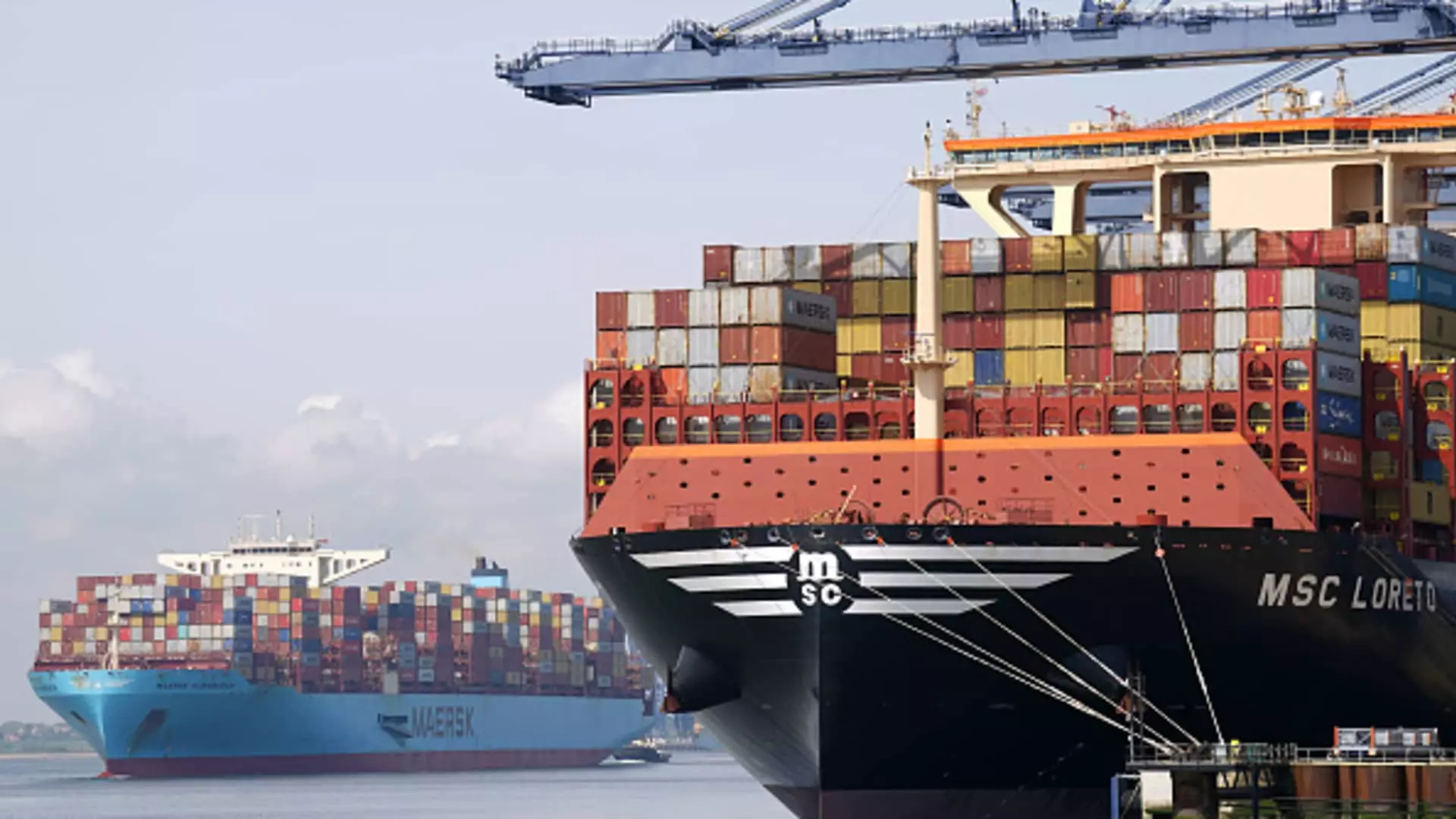Investor sentiment is hanging precariously as we enter the first quarter of 2025, clouded by the uncertainty stemming from U.S. trade policies under President Donald Trump. The tariffs imposed in April, alongside the unpredictable nature of their enforcement, have complicated the financial landscape in ways that even pessimistic projections could not have anticipated. As countries like the U.K. and members of the European Union engage with U.S. authorities to mitigate the substantial impacts of these tariffs, the global economic stage remains tense. What complicates matters even further is the potential fallout of a trade war between the United States and China—an outcome that could devastate economies interlinked through supply chains.
The Uncertain Climate for Consumers and Investors
European firms have started to report their earnings, hinting at challenges ahead for the region’s economy. For instance, luxury goods giant LVMH acknowledged that demand from “aspirational clientele” is vulnerable, showcasing the fragility of consumer spending amid rising costs attributed to tariffs. Meanwhile, ASML, a key player in the semiconductor industry, expressed concerns over uncertainty surrounding demand, a reflection of the amplified anxiety rippling through the supply chain. Businesses seem poised for a rocky earnings season as they confront the dual pressures of shifting consumer behavior and rising operational costs.
In this context, it is critical to recognize that the apprehension surrounding tariffs is multifaceted. Not only do these duties impact import prices, but they also squeeze profit margins and shape corporate strategies. As earnings reports trickle in, investors will be scrutinizing how companies adapt to tariffs—whether they pass costs onto consumers or absorb them, impacting their bottom lines.
The Energy Sector: A Case Study in Volatility
Companies like Shell and Maersk provide a palpable example of the relentless volatility in the energy and transport sectors. Shell’s fluctuating production metrics, coupled with its commitment to enhancing shareholder returns, starkly illustrate the balancing act corporations must perform in this climate. Analysts project that Shell’s first-quarter adjusted earnings are set to dip significantly, reducing by nearly 33% compared to the same period last year. This signals not only the immediate fallout of tariff-induced market volatility but also points to broader worries about recessionary trends and energy demand.
Maersk, on the other hand, epitomizes the challenges facing maritime and transport industries as they navigate disjointed global trade. With earnings projections dwindling and trade tensions escalating, Maersk’s candid acknowledgment of U.S. tariffs as significantly detrimental offers a sobering glimpse into the operational hardships that will shape its financial outlook. The multi-layered risk accompanying the current tariff regime raises questions about whether the U.S. economy can sustain its growth trajectory against the backdrop of such international pressures.
The Automotive Industry: A Tariff Timebomb
Automakers like Volkswagen face a unique set of challenges as tariffs impose restrictions on imports—a particularly daunting prospect for companies heavily reliant on transatlantic trade. With expectations of lower earnings coupled with burgeoning operational costs, Volkswagen’s situation illustrates how intertwined global markets are influenced by political decisions. The company’s CFO has acknowledged feeling like an “American company,” a sentiment reverberating throughout the industry as U.S. tariffs reshape market dynamics.
As Volkswagen prepares its earnings report, concerns about long-term impacts remain. The automotive sector, investing significantly in innovation and labor, now finds itself wrestling with economic policies that could either bolster or erode gains made over recent years. The sense of urgency among auto manufacturers to respond swiftly to policy changes underscores the precarious nature of multinational business operations in today’s trade environment.
Aviation: Flights of Fancy or Distant Horizons?
Airlines can be expected to reveal the tremors created by tariff impositions, particularly in terms of travel demand. Lufthansa’s anticipated earnings are imbued with uncertainty as global travel faces headwinds not only from tariffs but also social tensions erupting in response to U.S. policies. The company’s CEO previously projected growing profits, yet that optimism clashes with the reality of market dynamics that have shifted rapidly since.
Having to contend with strikes, market pressures, and fluctuating international tourism trends, airlines like Lufthansa face a turbulent road ahead. Each earnings report will carry the weight of public sentiment as consumers reconsider their travel choices in response to a fraught geopolitical atmosphere. The interplay between tariffs and air travel will likely shape the operational landscape, revealing how essential the tourism sector is to global economic stability.
Pharmaceuticals at a Crossroads
The ongoing uncertainties surrounding U.S. trade policy also extend to the pharmaceutical industry, with companies like Novo Nordisk bracing for potential tariffs. Access to the U.S. market is crucial for its blockbuster diabetes and obesity medications, leaving traders and stakeholders anxious about what regulatory changes may come. The potential for tariffs on pharmaceuticals not only signals market disruptions but raises ethical concerns around access to necessary medical treatments.
As earnings season unfolds, the responses from pharmaceutical giants could set the stage for how the industry confronts looming tariffs. Will they internalize costs or pass them down to consumers? How they choose to navigate this journey may redefine market expectations and ultimately dictate the future trajectory of drug accessibility.
In essence, as the first quarter of 2025 rolls out, the implications of tariffs on diverse sectors remain painfully under scrutiny. Economic optimism is increasingly overshadowed by mounting geopolitically induced uncertainties—a challenge that may profoundly reshape the contours of global trade for years to come.

